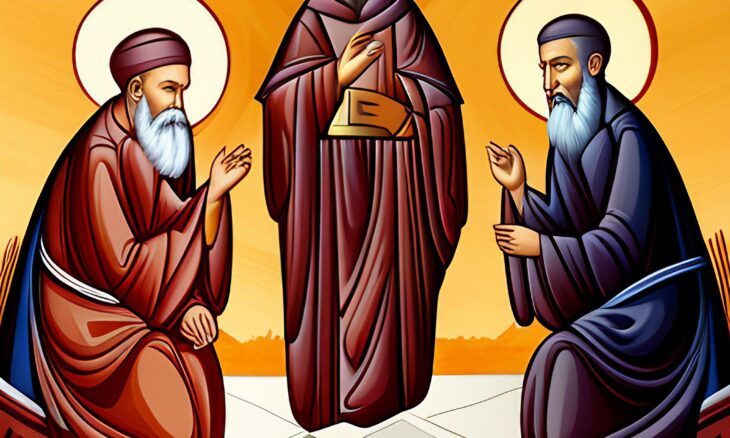The Unity-Preserving Power of Monasticism
In the Orthodox Church, monasticism plays a vital role in maintaining unity among its members through prayer, spiritual direction, and ascesis. Despite occasional resistance to ecumenical endeavors, monastics consistently pray for the unity of all within the Body of Christ. Moreover, a deep commitment to upholding doctrinal integrity has been a hallmark of Orthodox monasticism since the time of Anthony the Great. By embracing the unity of faith within themselves and fostering union of body and soul through prayer, monastics contribute toward the reconciliation of the entire world in Christ.
Beyond Academic Discourse: Prayer as Communication and Communion
Orthodox theological dialogue and ecumenical relations extend far beyond academic discussions led by religious thought experts. The concept of reconciliation cannot be reduced to an intellectual exercise alone. Alongside the pursuit of theological truth, there exists a fundamental form of communication and communion through prayer, which lies at the heart of monastic life. The primary role and function of monastics involve sustaining an ongoing prayer of the heart that sustains the world as a whole, fostering hope for reconciliation in a divided and turbulent world. Through their prayers, monastics safeguard theological dialogue from becoming mere empty words and instead remind us of its purpose: to fulfill Christ’s desire and command for unity among all.
Prayer: A Lifeline for Unity and Reconciliation
Monastic prayer serves as a lifeline, keeping the world alive, infusing it with hope and fostering the possibility of true reconciliation. It transcends intellectual debates and theoretical discussions, embodying the essence of unity and communion. As monastics devote themselves to the unceasing prayer of the heart, their prayers become a powerful force for unity and reconciliation. In a world marked by division and chaos, monastic prayer serves as a beacon of light, reminding us of Christ’s call for all to be one. It sustains the ongoing dialogue between different theological traditions, ensuring that this dialogue remains rooted in genuine communion and the desire for unity among all believers.



